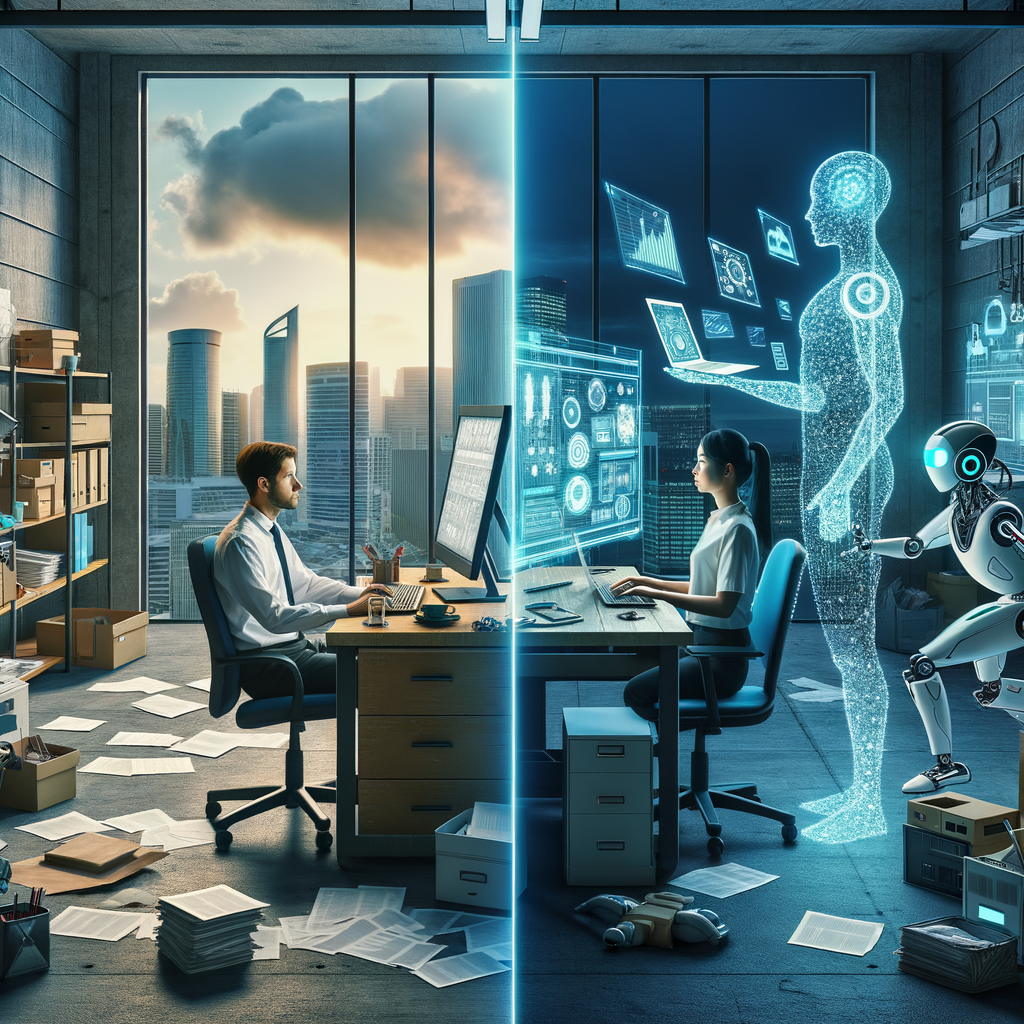Welcome to a new world, where work is no longer a mundane grind filled with operational bottlenecks or inefficiencies. A world where Artificial Intelligence (AI) technology is changing the way we work, making workflows smoother, faster, and more efficient. This is the new age of AI automation, and it’s revolutionising the way we perceive and approach work.
Welcome to the Future: AI Automation in Workflows
As the world becomes more digitised and interconnected, organisations are constantly seeking ways to optimise their operations. And AI automation presents a breathtaking avenue to achieve this. AI automation comes in various forms: from simple task automation to cognitive automation. The former involves automating repetitive tasks, while the latter involves machines learning from humans and making decisions based on that learning. This is a game-changer in every sense of the word.
By applying AI automation to workflows, companies can significantly reduce the time spent on mundane tasks and allow employees to focus on more strategic, value-added tasks which is aligned to creative and analytical thinking. AI can analyse massive amounts of data, make predictions, and offer solutions in record time. This increases the speed and efficiency of processes, leading to improved results and higher productivity.
In this brave new world, machine learning, natural language processing, and robotics are no longer the stuff of science fiction. They are practical tools being used to drive operational excellence in businesses across industries. This is our future, and it’s already here.
Smashing Operational Bottlenecks with AI
Bottlenecks in operations can significantly hamper productivity and efficiency. They can slow down processes, create backlogs, and increase the risk of errors. Enter AI, with its ability to analyse vast amounts of data swiftly and accurately. AI can identify patterns, predict trends, and make recommendations, enabling organisations to pinpoint and address bottlenecks before they escalate.
Not only can AI help identify bottlenecks, it can also automate routine tasks that often contribute to these bottlenecks. This frees up employees’ time, allowing them to focus on tasks that require human intelligence and judgement. The result? A streamlined workflow, increased productivity, and improved operational efficiency.
Furthermore, with the advent of AI-powered tools such as chatbots, businesses can automate their customer service, handling common queries and issues swiftly and efficiently. This not only improves customer satisfaction, but also frees up human agents to handle more complex issues, smashing yet another operational bottleneck.
The New Efficiency Era: Workflows Powered by AI
Artificial Intelligence isn’t just about automating tasks and smashing bottlenecks; it’s about creating a new era of efficiency. AI-powered workflows can process data much faster and more accurately than any human could, leading to quicker decisions and better outcomes.
In this new era, businesses can utilise AI to optimise their operations, analyse customer behaviour, and predict market trends, giving them a competitive edge. With AI, businesses can automate repetitive tasks, freeing up their employees to focus on more strategic activities, leading to increased creativity and innovation.
From predictive analytics to intelligent automation, AI is ushering in a new era of efficiency. It’s not about replacing human workers, but enhancing their capabilities, making them more productive and valuable. This is the new efficiency era, powered by AI.
From Mundane to Magical: AI Revolution in Operations
The magic of AI lies in its capacity to transform the mundane into the extraordinary. Routine tasks that once consumed hours can now be completed in minutes, thanks to AI automation. But it doesn’t stop there. AI can learn from experience, adapt to new situations, and even predict future trends, adding a touch of magic to everyday operations.
By automating routine tasks, AI not only makes workflows more efficient, but also more enjoyable. Employees are no longer bogged down by repetitive tasks, freeing them up to focus on more creative and strategic tasks. This not only improves productivity, but also boosts morale and job satisfaction.
So, welcome to the AI revolution, where the mundane is transformed into the magical, where bots work alongside humans, not against them. This is the future of work, and it’s a future filled with promise and potential.
In this exciting new age of AI automation, we are witnessing a revolution in workflows and operations. We’re smashing bottlenecks and ushering in a new era of efficiency. We’re transforming the mundane into the magical. But most importantly, we’re making work a more enjoyable and fulfilling experience. So, here’s to AI, our partner in productivity, and the bright future it promises. Welcome to the future of work!
#AIAutomation, #FutureOfWork, #ArtificialIntelligence


